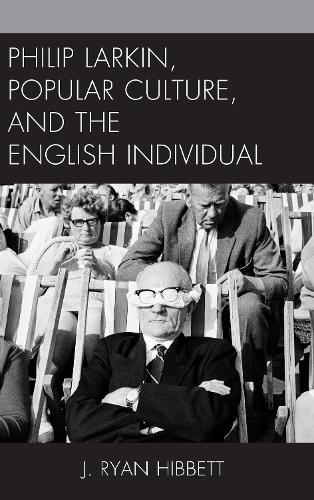
Philip Larkin, Popular Culture, and the English Individual
(Hardback)
Available Formats
Publishing Details
Philip Larkin, Popular Culture, and the English Individual
By (Author) J. Ryan Hibbett
Bloomsbury Publishing PLC
Lexington Books
18th February 2019
United States
Classifications
Professional and Scholarly
Non Fiction
Literature: history and criticism
Literary studies: c 1900 to c 2000
821.914
Physical Properties
Hardback
194
Width 158mm, Height 230mm, Spine 20mm
435g
Description
Despite the denigrating revelations of his published letters, Philip Larkin looms larger than ever, both as an English national icon and as a championed voice of postwar English poetry. Philip Larkin, Popular Culture, and the English Individual seeks to move beyond the decades-long preoccupation with Larkins reputation and canonical status, approaching Larkin instead as part of a persevering cultural phenomenon through which the traditionally distinguished individual is reconstituted in the company of the ordinary and the interchangeable. It tracks how Larkins poetic texts negotiate and engage with representations of popular culture at a time when notions of celebrity, authenticity, and cultural authority were newly (and deeply) unsettled by rock and roll, and when cultural capital had become a coveted substitute for diminished imperial wealth. From his unprecedented f-bombs to his cultivation of a familiar, comedic personality, this book examines how Larkin realigns common social practices and popular art formsbe it attending a church service, watching television, or enjoying a concertto the isolated, knowing gaze of the individual.
Reviews
This book should appeal to a wide range of readers. Written in a clear, often clever, and always accessible style, it will obviously be of great interest both to academic and non-academic readers of Larkin, who is indeed, as the author claims, that rare poet who manages to be both popular with 'regular readers' and respected by 'intellectuals.' But the book should also interest readers pursuing larger game than Larkin alone, including those intrigued by issues of canonization, those fascinated by debates in literary theory, and those concerned with the whole matter of the divideand the intersectionsbetween 'high' and 'popular' culture and the impact of broader cultural forces on both. -- Robert C. Evans, Auburn University at Montgomery
Author Bio
J. Ryan Hibbett is assistant professor of English at Northern Illinois University.
